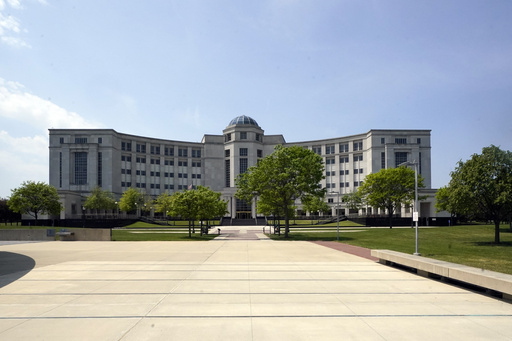
The ACLU of Michigan recently publicized a substantial investment into two races for the state Supreme Court, emphasizing the significance of the competition in the pivotal state where control of the court hangs in the balance. The ACLU Michigan is allocating around $2 million for the races, including seven weeks of statewide radio ads leading up to the November election. The organization’s Political Director, Merissa Kovach, noted that the messaging will primarily focus on the candidates’ stances on reproductive rights.
Even though Michigan voters solidified abortion rights in the state constitution in 2022, firmly establishing the right to abortion, Democrats and their supporters are still framing the state Supreme Court race in the context of reproductive rights, asserting that the court could potentially rule on the matter in the future. Michigan’s state Supreme Court elections are officially nonpartisan, with candidates appearing on the ballot without a party affiliation, and straight-ticket voting not applying to these races. Nevertheless, candidates are nominated at state party conventions.
The ACLU advocates for abortion access and actively challenges restrictions and bans nationwide through its legal efforts. Kovach clarified that although the ACLU is not officially endorsing candidates in the Michigan races, the advertising will likely benefit Democratic-backed Justice Kyra Harris Holden and law professor Kimberly Ann Thomas, who are up against Republican-nominated Judge Patrick O’Grady and state Rep. Andrew Fink, respectively.
The current composition of the court has a 4-3 majority of justices backed by Democrats. The ACLU’s advertising campaign will also spotlight decisions that the left-leaning organization has approved of in recent years, as well as the candidates’ track records on other issues such as LGBTQ+ rights and voting accessibility.
Kovach expressed that the ACLU Voter Education Fund’s investment marks the organization’s initial foray into the Michigan Supreme Court race. The political action committee is also directing approximately $300,000 towards state House of Representative races. Michigan Democrats view reproductive rights as a crucial voter motivator in the battleground state, emphasizing that the state Supreme Court could interpret the 2022 constitutional amendment in future cases. A lower court judge had previously halted Michigan’s 24-hour waiting period for abortions earlier this year.
On the opposing side, Michigan Republicans have framed the state Supreme Court elections as a contest against governmental overreach from the Democratic majority, contending that the issue of abortion is settled in law due to the constitutional amendment. In addition to the state Supreme Court, Democrats in Michigan dominate the House and Senate, along with having elected a Democratic governor. The 2022 abortion ballot measure notably played a role in driving Michigan Democrats to victory. The Michigan Democratic Party is also heavily investing in the high court races, reportedly dedicating over $1 million in digital advertising, while Bolden and Thomas are spending $1.5 million on a TV ad campaign.
Recent campaign finance reports indicate that Bolden and Thomas have surpassed their opponents in fundraising by hundreds of thousands of dollars, largely due to contributions from political action committees associated with labor unions and prominent Democrats like Gov. Gretchen Whitmer and Secretary of State Jocelyn Benson. Scott Greenlee, a former vice chair of the Michigan Republican Party and consultant in the races, acknowledged that the Democratic-nominated candidates, having faced no challengers at the state convention, are currently ahead in fundraising and spending, putting the Republican-nominated candidates in “catch-up mode.”
Considering the U.S. Supreme Court’s decision in June 2022 to overturn Roe v. Wade, transferring abortion policy to the states, state Supreme Court races have taken on increased significance. Consequently, substantial funding is being poured into anticipated contentious races in Ohio and Montana due to potential rulings on abortion.
